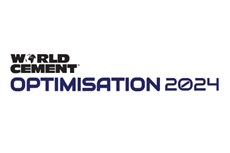National Research Council showcasing new algal biorefinery project to reduce CO2 emissions
Published by Joseph Green,
Editor
World Cement,
The Government of Canada is supporting clean energy research, development and technology demonstration at all stages of the innovation spectrum, from high-risk, early stage research that can deliver transformative energy solutions, to later stage technology demonstrations to help speed the commercialization and adoption of cleaner energy technologies.

Canada’s first algal biorefinery demonstration project, a collaborative research effort between the National Research Council of Canada’s (NRC) Algal Carbon Conversion (ACC) program, Pond Technologies and Votorantim Cimentos’ St Marys Cement, is revolutionising how industrial carbon emissions are managed.
The project uses a 25 000 L photobioreactor within a pilot scale algal biorefinery to recycle carbon dioxide and other airborne industrial pollutants into algal biomass that can be further converted into sustainable products, including renewable biofuels and biomaterials. The process being deployed by NRC experts and its partners is designed to rapidly recycle carbon dioxide (CO2) and other airborne industrial emissions into biomass through photosynthesis.
As part of Canada’s commitment to the 21st Conference of the Parties to the United Nations Framework Convention on Climate Change (COP21), the Government of Canada joined a global effort to accelerate clean energy innovation, Mission Innovation, in November 2015 and committed to double funding for clean energy and clean technology research and development by 2020.
These collaborative efforts are to reduce greenhouse gas emissions through biological conversion into algal biomass, renewable biofuels, and other value-added bio-products. As the world transitions to a low-carbon economy, strategic investments in clean energy and emission-reducing research and development will play an increasingly important role in supporting Canada’s economic growth, in meeting our climate change objectives, while protecting the environment.
Read the article online at: https://www.worldcement.com/the-americas/04112016/national-research-council-showcasing-new-algal-biorefinery-project-to-reduce-co2-emissions/
You might also like
Rohrdorfer starts ethylene production from carbon dioxide
Following a test phase, production is to be scaled up to an industrial scale, thereby establishing a seamless CO2 circular economy.


